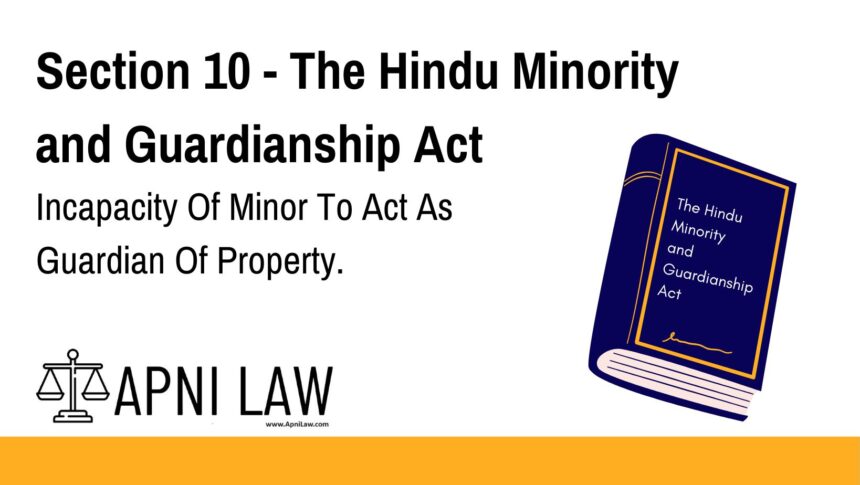Code
“A minor shall be incompetent to act as guardian of the property of any minor.”
— Section 10, The Hindu Minority and Guardianship Act, 1956
Explanation
Section 10 lays down a clear and absolute rule:
A minor (i.e., a person below 18 years of age) cannot be appointed or act as a guardian of another minor’s property.
Key Points:
-
A minor lacks the legal capacity to manage or safeguard property, hence cannot undertake fiduciary duties as a guardian.
-
The law ensures that someone legally responsible and mature handles sensitive responsibilities like managing a minor’s property.
-
Even if the minor is mature or knowledgeable, their age statutorily disqualifies them.
Illustration
🔹 Example:
Rohan, aged 16, is the elder brother of Reena, aged 10. Their parents passed away, and there is property to be managed.
📌 Even if Rohan is emotionally responsible and wishes to act as guardian for Reena’s property, he is legally disqualified under Section 10.
Common Questions & Answers
Q1: Can a minor be appointed guardian for their sibling?
No. Under Section 10, a minor is not competent to act as a guardian for any other minor — irrespective of relationship or maturity level.
Q2: Is this rule absolute?
Yes. The provision is clear and leaves no room for exceptions — a minor cannot be a guardian of property.
Q3: Can a minor act as guardian for personal care and custody?
Only in rare practical circumstances, and never legally appointed. The Act specifically bars property guardianship.
Q4: What happens if no suitable adult guardian is available?
The court may appoint a suitable adult guardian or approach welfare authorities. The minor sibling cannot legally be considered.
Conclusion
Section 10 reinforces the legal principle that only adults with sufficient legal capacity and maturity can undertake the responsibility of property guardianship. It acts as a safeguard against mismanagement or exploitation and ensures that the minor’s assets are protected under capable supervision.








